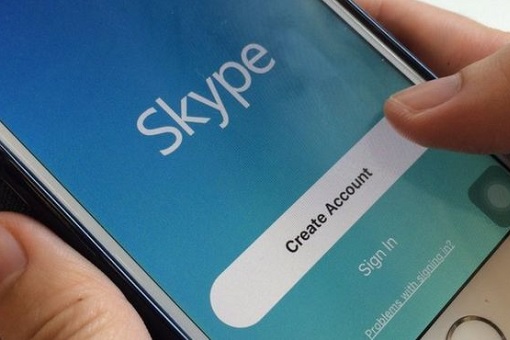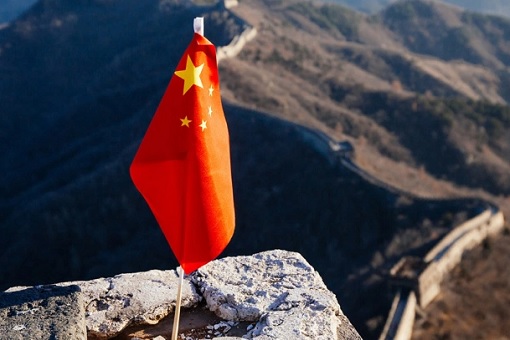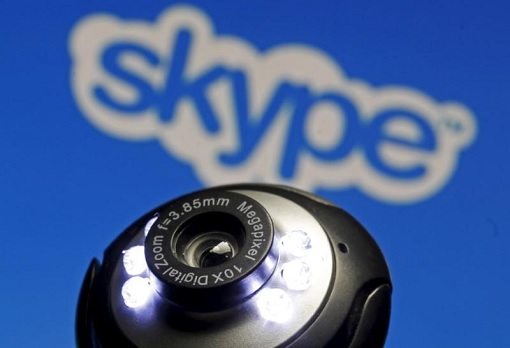Mark Zuckerberg’s fluency in Mandarin is legendary. Yet, despite all his efforts learning and speaking the language to impress President Xi Jinping, he couldn’t convince Beijing that Whatsapp is a harmless application. WhatsApp was one of the few foreign messaging apps available in mainland China until it was blocked before the Communist Party congress gets underway.
China’s Internet clampdown has gotten more serious since then. In a latest move to further suppress and oppress freedom of expression, Beijing has ordered the removal of Skype from Apple’s app store, and the U.S. tech giant obediently complies. The app is also no longer available for download on Alphabet Google (Android) Play store in the country.
Apple said – “We have been notified by the Ministry of Public Security that a number of VoIP (Voice over Internet Protocol) apps do not comply with local law therefore these apps have been removed from the app store in China.” Other local tech players such as Xiaomi and Huawei have also taken down Skype app from their respective app stores.

Microsoft, the owner of Skype after splashing US$8.5 billion for the popular communication application, said the app had been “temporarily removed” and the company was “working to reinstate the app as soon as possible”. Well, good luck with that. Even if Bill Gates could sing and recite ancient Chinese poetry in front of Xi Jinping, it would not be enough to impress the Chinese president.
The Cyberspace Administration of China has already blocked foreign companies’ products – Google, Facebook, Twitter, YouTube, Instagram, Whatsapp and now Skype. The primary reason Whatsapp was blocked is due to its’ encryption capability. It’s harder to censor photos, videos and other multimedia format files, hence, the order to exterminate Skype.
To make money in China, foreign companies such as Apple has no choice but to play ball and complies with whatever rules or ad-hoc request set by the Cyberspace Administration of China. Anything that the Chinese authorities cannot see, track or control will be removed from the country. Therefore, messaging apps Telegram and Line, as well as Facebook and Gmail, are disallowed.

In July, Apple removed VPN (virtual private network) services from its China app store, as part of Beijing’s 14-month crackdown on so-called “illegal VPNs”, which started in January this year. So far, Apple had removed 674 VPN app, kowtowing to the Chinese government. Two months earlier in May, Apple removed iBooks and iTunes Movies from the nation’s app store.
Skype is one of many powerful tools messaging and video call app frequently used by people in authoritarian countries such as China and United Arab Emirates (UAE). While it’s not as strict as China, video call app such as Viber, WeChat, Whatsapp are blocked in Dubai, leaving Skype as the only survival kit for video conferencing with outside world.
China’s policy of policing and controlling foreign-run social media apps and services is further emboldened by greedy multi-billion-dollar corporations such as Apple, who puts profitability above anything else. Apple has come under fire, as critics accuse the world’s largest company of aiding and abetting censorship, but it appears the American company has turned a deaf ear.

Zuo Xiaodong, vice-president of the China Information Security Research Institute, however, said – “Any instant messaging apps operating in China must follow the cybersecurity law, there’s no question about it. It goes without saying whose regulations need to be followed if a company’s own rules contradict China’s law – as long as it wants to continue to operate in the Chinese mainland.”
Together with his anti-corruption campaign, President Xi has been consistently suppressing freedom of Internet. He has been vocal in calling for China to establish sovereignty online, and has set up a new internet regulator to consolidate controls over the web. Effective February 2018, China’s telecom regulator said it would ban unauthorized VPNs entirely.
China’s Cybersecurity Law, which came into effect on June 1 this year, had created chaos among business owners as the law required all data to be stored in China, under the pretext of helping to guard against cyber attacks and prevent terrorism. Apple opened its first data centre in China this month, again, in compliance with the new law.

Other Articles That May Interest You …
- Internet Crackdown!! – WhatsApp Being Blocked In China
- China Bans Winnie The Pooh – Here’s Why The Teddy Bear Is Blacklisted
- China’s New Cybersecurity Law Effective Today – What Does It Mean To You
- China Invasion – Top 10 American Iconic Brands Now Owned By Chinese
- WhatsApp To Sell Your Phone No To Evil Zuckerberg – Here’s How To Stop It
- Beware!! Facebook Can Tell If You’re A “Narcissist” Or “Insecure”
- Finally, You Can Save Some Money With Free WhatsApp Voice Calls
- Revealed – Why Facebook Mark Zuckerberg Wears The Same Shirt Every Day

|
|
November 23rd, 2017 by financetwitter
|


|

|

|

|

|

|




























Comments
Add your comment now.
Leave a Reply